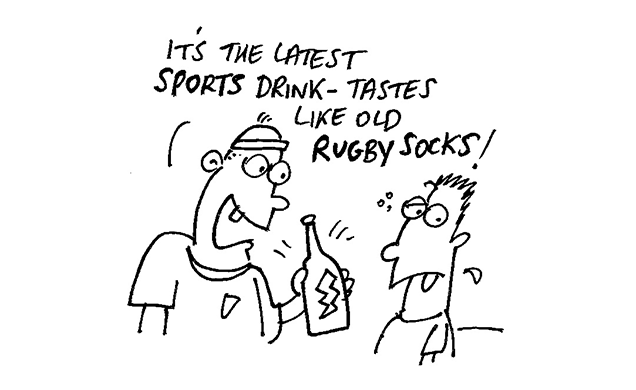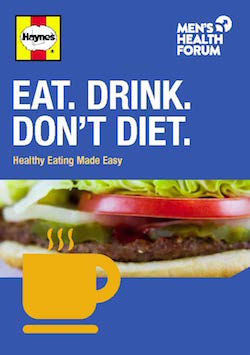Can food make you better at sport?

When you eat well, you can exercise harder, for longer, and recover more quickly.
How does that work?
During exercise, the rate at which your muscles burn energy increases by as much as 20 times, so exercising muscle needs a quick source of energy: glucose (sugar). Some comes from the starchy glycogen (stored sugar) in your muscles, but most comes from your circulation. This is why regular exercise lowers your risk of type 2 diabetes.
What foods are best?
To fuel your muscles:
- Try complex carbohydrates (eg wholegrain bread, brown rice, wholemeal pasta, wholemeal crispbread, wholegrain cereals such as shredded wheat, weetabix, porridge or unsweetened muesli)
- Eat more starchy vegetables, including peas, beans, lentils and sweet potatoes
- Eat fruit as snacks - bananas are good as they are portable and help replenish your body’s carbohydrate stores after exercise. (Whole fruit, not smoothies.)
How much exercise?
Light exercise such as walking off a meal reduces the rise in blood sugar and fat levels that can lead to weight gain, hardening of the arteries, raised blood pressure and cholesterol and type 2 diabetes. Watch out for cramp or heartburn though.
For general health, two and a half hours (150 minutes) of moderate exercise (or 75 minutes of vigorous exercise) a week is recommended. If you also want to lose weight, you should be active for an additional 60 minutes, at least three times a week.
Should I drink water after exercise?
Although sweat contains dissolved salts (electrolytes), you lose much more water than salt during intense exercise. You need to replace this fluid loss by drinking at least a pint of plain, tap or bottled water before you start drinking electrolyte solutions or those containing glucose.
What about sports drinks?
For most men, the best fluid to drink before and during exercise is either plain water or natural coconut water (for a bit of flavour). Dilute (hypotonic) sports drinks may have a place if you are working-out but are not needed if you are exercising for less than an hour. Anyway, diluted fruit juice or squash work just as well.
- Hypotonic Drinks contain a lower concentration of salts than body fluids plus 2 to 3 grams sugar per 100ml. These are best consumed after a general workout to top up muscle energy stores.
- Isotonic Drinks contain the same concentration of salts as body fluids plus 6 to 7 grams sugar per 100ml, so provide more energy. These are designed for professional athletes such as middle- and long-distance runners and those doing team sports.
- Carbohydrate or Energy (hypertonic) Drinks contain even higher quantities of dissolved salts and 10 to 20 grams of sugar per 100ml. They are only useful to replenish your carbohydrate stores if your exercise session extends beyond the 60-minute mark or if you are an athlete who requires energy without fluid (eg. gymnast, weight lifter).
Do I really need them?
Don’t use energy drinks when you don’t need them. If you haven’t been exercising for at least an hour, they supply unneeded sugar and calories like any other unneeded snack.
What’s more, the sugar in energy drinks and sweetened, acidic or fizzy beverages can damage your teeth. Using a straw positioned towards the back of your mouth reduces the contact time between your teeth and the drink and may reduce the damage.
Mixing alcohol with energy drinks increases the risk of alcohol poisoning because the caffeine keeps you going so you drink more. Energy drinks also create a ‘wired’ feeling which, when combined with alcohol, may lead you to do things that you wouldn’t usually want to.
What about caffeine drinks?
Performance-enhancing high-energy drinks may contain high amounts of caffeine. These have been linked to serious side effects such as heart palpitations, caffeine intoxication and even death. They are best avoided if you are not exercising vigorously.
However, for a serious athlete, consuming the equivalent of 3-4mg of caffeine per kilogram of bodyweight (so 210-280 mg for someone weighing 70kg) one hour before exercise has been shown to improve endurance and performance in a variety of sports, including cycling, high-intensity running, repeated sprinting, football and rugby. The effects last 80 to 90 minutes.
We don't currently post comments online but are always keen to hear your feedback.
| This content is wholly based on the Men's Health Forum's man manual Eat. Drink. Don't Diet. which was prepared in line with the NHS England Information Standard of which the MHF is a member. Follow the links for more information or to buy copies. |
Date published
17/06/15
Date of last review
28/02/15
Date of next review
28/02/18
|
The Men’s Health Forum need your support It’s tough for men to ask for help but if you don’t ask when you need it, things generally only get worse. So we’re asking. In the UK, one man in five dies before the age of 65. If we had health policies and services that better reflected the needs of the whole population, it might not be like that. But it is. Policies and services and indeed men have been like this for a long time and they don’t change overnight just because we want them to. It’s true that the UK’s men don’t have it bad compared to some other groups. We’re not asking you to ‘feel sorry’ for men or put them first. We’re talking here about something more complicated, something that falls outside the traditional charity fund-raising model of ‘doing something for those less fortunate than ourselves’. That model raises money but it seldom changes much. We’re talking about changing the way we look at the world. There is nothing inevitable about premature male death. Services accessible to all, a population better informed. These would benefit everyone - rich and poor, young and old, male and female - and that’s what we’re campaigning for. We’re not asking you to look at images of pity, we’re just asking you to look around at the society you live in, at the men you know and at the families with sons, fathers and grandads missing. Here’s our fund-raising page - please chip in if you can. |



